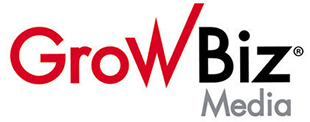No two businesses are built alike. The daily challenges faced by Amazon – founded by the world’s wealthiest man Jeff Bezos and employer of more than 1.5 million workers globally – are bound to be vastly different from the issues a small business owner confronts every day building a technology startup.
Whereas Amazon has a small army of human resources employees and consultants working on behalf of Bezos, small business owners across the country have no choice but to handle the complexities of hiring, payroll and every other HR-related task themselves, whether or not they have the tools or training for the job.
Even small businesses that have a handle on the basics often struggle with some of the same entrenched problems. So what are the most difficult and deep-rooted challenges that grind the gears of today’s small businesses? And how do the owners and leaders of the most successful of these organizations respond – not just meeting those challenges, but thriving in spite of them?
What Is the Top HR Challenge Faced by Small Businesses?
Again, every small business is built differently from the next. No universal blueprint for navigating HR challenges exists because every business is subject to at least slightly different circumstances and experiences. But there is at least one common thread seen among small businesses that struggle in this area: access to resources.
Even among the small businesses that fully understand and accept HR best practices and their obligations as employers, there can be a disconnect between knowing what needs to be done and possessing the ability to do it. Many smaller organizations lack the templates, processes and legal resources that large corporations are able to access. For businesses that field a small HR staff (sometimes made up of just a single employee), establishing a modern human resources infrastructure that functions efficiently – let alone that is adaptable and scalable to new needs – may be all but impossible.
Where Should a Small Business Start When Answering This Challenge?
The typical solutions for most corporations grappling with HR resources issues – hire more employees, purchase expensive software – aren’t practical for small businesses. Instead, modestly sized HR departments would do well to categorize and prioritize.
One philosophy worth practicing is COHR – which stands for compliance, operations, hiring and retention. Start by tackling compliance, which represents the highest risk for any organization – especially smaller businesses that lack the deep pockets to cover fines, litigation settlements and legal-defense teams. Assuming most business owners are straight shooters, they’ll want to keep their business above board anyway. But it also happens to be the best way to hire and retain talent in the long haul and set it up for growth.
Next, in order of prioritization, are HR operations, new hires and employee retention. No matter the size of a business, compensating employees, managing benefits packages and overseeing training are just a few examples of basic, necessary HR operations that nevertheless require significant time, effort and resources. And because you want all of those efforts to go toward talented, standout employees who, ideally, will be sticking around for a while, hiring and retention follow closely on the heels of operations. But compliance and operations being in place are critical to successfully hiring and retention.
Everyday HR challenges can be tough for even large businesses to get their arms around. But those issues become more slippery at a smaller scale, when modern HR resources aren’t as accessible and the infrastructure to complete even the most rudimentary tasks may not exist. That isn’t the fault of a small business – it’s simply the nature of doing business as a modern employer.
No matter your exact approach toward meeting these challenges as a small business owner or manager, taking small steps and prioritizing them based on the stage of your business is a prudent general strategy for navigating the complexities of HR in small businesses.
Carly Holm is the founder and CEO of Humani HR – an organization that provides HR consulting and fractional HR support to small and medium sized businesses. Before founding Humani, Carly worked as a leader within the HR departments of CIBC and Bank of America.



